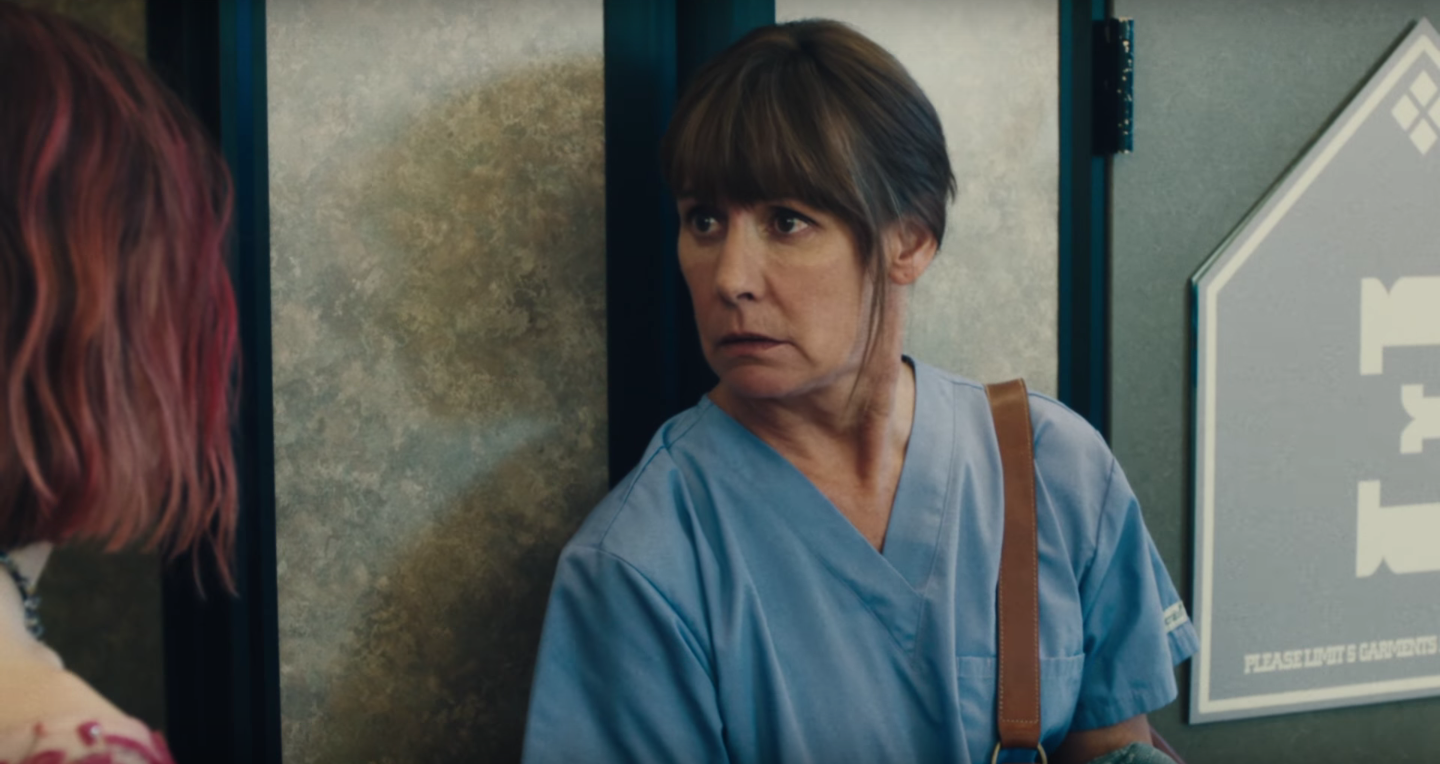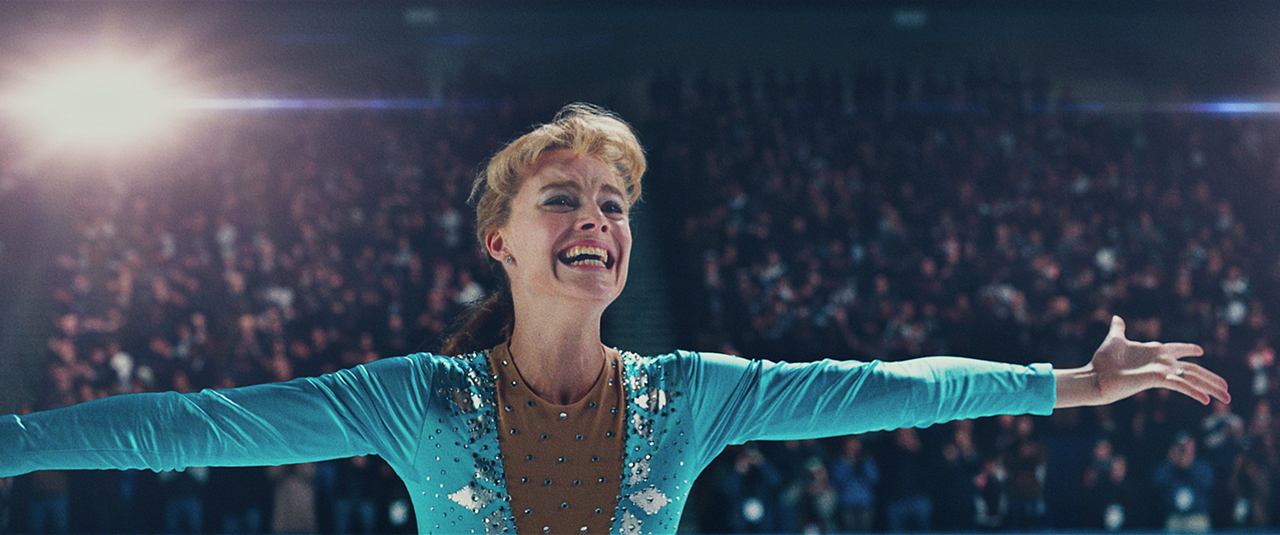Ones to Watch, Vol. 3 Edition
Jim Keller
As I have said in the past, the Best Supporting Actor and Actress races of the Academy Awards are extremely unpredictable. Often a film’s narrative can decide who from the supporting races makes it in. Last year was a bit different, as you can see from the outcomes below, but look no further than Rachel McAdams’s nomination for Spotlight and you can see that there are plenty of other forces at work besides one’s actual performance. (For those of you who haven’t seen Spotlight, McAdams does next to nothing on screen). This is why I use a different format when discussing the supporting than with the leading races. Instead of laying out each actor’s accomplishments and whether I would bet on them for a nomination, I have broken down the various circumstances these actors find themselves in as a result of the film’s narrative, and how that may influence Oscar voters.
Various critics groups, including the National Board of Review (NBR), the New York Film Critics Circle (NYFCC), and the Los Angeles Film Critics Association (LAFCA) have announced their respective winners and The Broadcast Film Critics Association (BFCA), Hollywood Foreign Press Association (Golden Globes), and the Screen Actors Guild (SAG) have announced their respective nominees. These announcements and the events associated with them help to form a consensus of Oscar nominees and make the acting categories more clear as we approach nominations on January 23rd. In effect, they signal the start of the Oscar race’s second leg.
~THE GENTS~
Last Year’s Best Supporting Actor Results:
Mahershala Ali — Moonlight: Ali was not only nominated, but he took home the Best Supporting Actor Oscar and deservedly so.
Dev Patel — Lion: He was nominated in this category, though his was a leading role (category fraud).
Lucas Hedges — Manchester by the Sea: Hedges beat the odds of being a young newcomer who was nominated.
Michael Shannon — Nocturnal Animals: My hunch that Shannon would end up being the only nomination for the film in the major categories was correct. In fact, it was the only Oscar nomination the film received in any category, and he bumped co-star and Golden Globe winner Aaron Taylor-Johnson out.
Jeff Bridges — Hell or High Water: As I predicted, Bridges easily took one of the five slots and earned his fourth nomination in this category.
The only real snub was Hugh Grant (Florence Foster Jenkins) who gave his best performance to date. Clearly, by this time last year, it was easy to determine which supporting roles would go on to be nominated by the Academy.
Before we dive into this year’s list of contenders, let me touch upon some of the phenomena we often see in the supporting races:
Two for one: A film can often have multiple supporting nominees. The precedent was set in both supporting categories back in 1939 when Hattie McDaniel competed against Olivia de Havilland for Gone with the Wind, and Harry Carey and Claud Rains were nominated for Mr. Smith Goes to Washington. Since then, we have seen this play out 29 times in Best Supporting Actress and only 16 times in Best Supporting Actor in the 89 years of the Academy Awards. This last occurred in Supporting Actor for 1991’s Bugsy when Harvey Keitel and Ben Kingsley were nominated and in Supporting Actress for 2011’s The Help, which yielded a win for Octavia Spencer and a nomination for Jessica Chastain. Recently, many Oscar watchers have come to believe that a double nomination for a film would cancel both actors out, which could explain why we haven’t seen it in six years.
Ride Along: A Best Picture nomination can often yield supporting nominations for the film’s actors, e.g., Rachel McAdams (Spotlight) and Lucas Hedges (Manchester by the Sea).
Category fraud: In years where there are too many high-quality performances to choose from, Academy voters often fill lead performance slots with supporting roles and vice versa. This year, keep your eye on Steve Carell in Battle of the Sexes and Armie Hammer in Call Me by Your Name for the men. Similarly, Brooklynn Prince in The Florida Project for the ladies.
Eyes on the newcomer: Oscar voters will often rally around a newcomer and anoint them the prom king/queen, e.g., Mahershala Ali in Moonlight).
Here is a guide to the precursor awards and nominations standings: BFCA (*), LAFCA (+), NBR (~), NYFCC (^), Golden Globe (#), and SAG ($). The symbols appear after the contender’s name.
Zeitgeist
Mark Rylance (Dunkirk), Ben Mendelsohn (Darkest Hour)*:
In the year following the year that saw the #OscarsSoWhite curse beat back with a broom, we’re all hoping that the Academy will continue to stem the tide of controversy. But we do so perhaps with more on the line than the country is accustomed to. In any given year, the Academy Awards, to some degree, take the temperature of what is going on in the world. Last year’s the Best Picture lineup included Hell or High Water, at once a crime thriller and a comment on the plight of the disenfranchised American. This year there are three films in play for Best Picture that comment on the Trump regime, including two films that take place during WWII. The first is Dunkirk, Christopher Nolan’s gorgeous depiction of the evacuation of allied soldiers who were surrounded by the German Army. The film, which capitalizes on Winston Churchill’s famous “We shall fight on the beaches”, illustrates the very air, land, and sea combat that he portended in his speech, but more importantly shines a light on what we can achieve when we work together. Enter Mr. Dawson (Rylance), a private boat captain among the 850 Little Ships of Dunkirk that ferried more than 338,000 soldiers to safety as part of Operation Dynamo. With a 94 on Metacritic Dunkirk is one of the year’s best reviewed films, and it has wracked-up eight BFCA nominations. Rylance’s subtle performance skillfully represents the courage and heart of the seafaring men. Where Dunkirk focuses on a singular WWII event, Darkest Hour concerns the whole enchilada. The film follows the newly appointed Churchill (Gary Oldman delivering a towering performance) while Hitler closes in on Britain, forcing Churchill to decide whether to negotiate or retaliate. Perhaps best known to American audiences for his work in Netflix’s Bloodline, Australian actor Mendelsohn plays the reigning monarch of the time, King George VI who was known for his stutter. His role in the Netflix series was well received by the Primetime Emmy Awards and the Golden Globes. Given the luck he has had in television, it will be interesting to see if the film community welcomes him. Despite both men missing out on precursor awards and nominations, their respective films stand firmly in the Best Picture race, which increases their chances for a nomination.
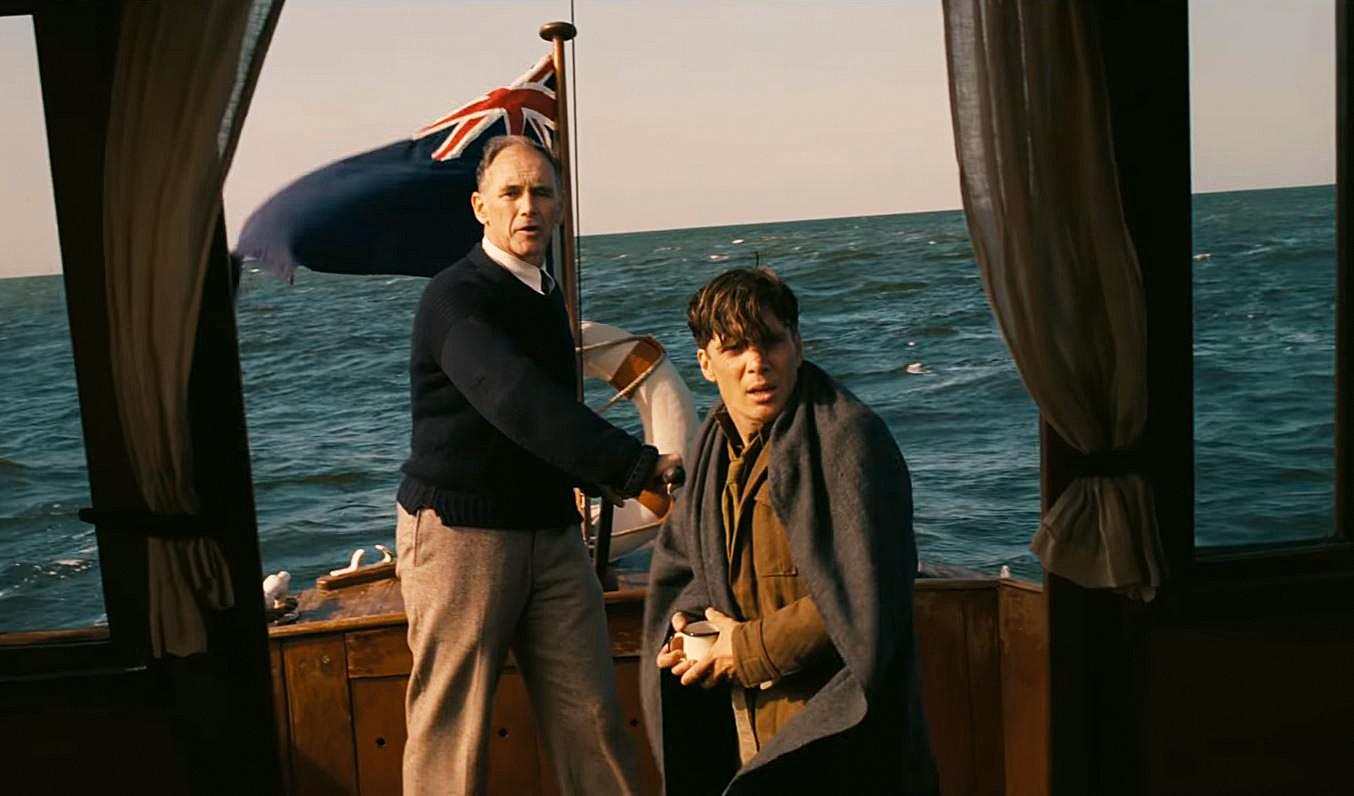 Mark Rylance (left) in Dunkirk.
Mark Rylance (left) in Dunkirk.
Teachers
Willem Dafoe (The Florida Project)~ ^ + * # $, Armie Hammer* #, and Michael Stuhlbarg* (Call Me by Your Name): The second category of contenders dovetails nicely with the first because in dark times, we look to true leaders to lead us into the light. Dafoe, Hammer, and Stuhlbarg’s characters strive to lead by example—a characteristic that also shines through in Rylance’s character, I might add. Because many of the tenants living in the motel inhabited by mischievous Moonee (Prince, more on her below) and her young friends are too wrapped up in themselves to do any real parenting, Dafoe’s caretaker Bobby functions as everyone’s parent. And what is a parent, if not a teacher? The film premiered in the Director’s Fortnight section of the Cannes Film Festival this year and went on to play at the Toronto and New York film festivals (TIFF and NYFF) where Dafoe earned frontrunner status. Dafoe has two Best Supporting Oscar nominations under his belt for Platoon (1989) and The Shadow of the Vampire (2001). Stuhlbarg plays the father of young Elio (a riveting performance from relative newcomer, 21-year-old Timothée Chalamet) who falls in love with Oliver (Hammer who has never been better) thus the two men teach the teenage boy about two distinct kinds of love. Stuhlbarg was nominated for the Golden Globe for Best Performance by an Actor in a Motion Picture – Comedy or Musical in 2010 for A Serious Man. He also appears in The Shape of Water this year thereby clocking in two memorable performances. In Call Me by Your Name, his performance is subtle but powerful, and the onus falls on him to deliver one of the film’s most poignant scenes. Hammer, on the other hand, has struggled to gain ground following his debut in The Social Network back in 2010. Here, he imbues the film with such a warmth and vitality that it proves he has more to offer than a pretty face. Between the two men, Hammer has the edge with his Golden Globe nomination, but Dafoe has maintained his frontrunner status. In fact, as the only actor in the race to be selected by every precursor awards group, a win by anyone else would be a shock.
 Willem Dafoe (left) and Brooklyn Prince (right) in The Florida Project.
Willem Dafoe (left) and Brooklyn Prince (right) in The Florida Project.
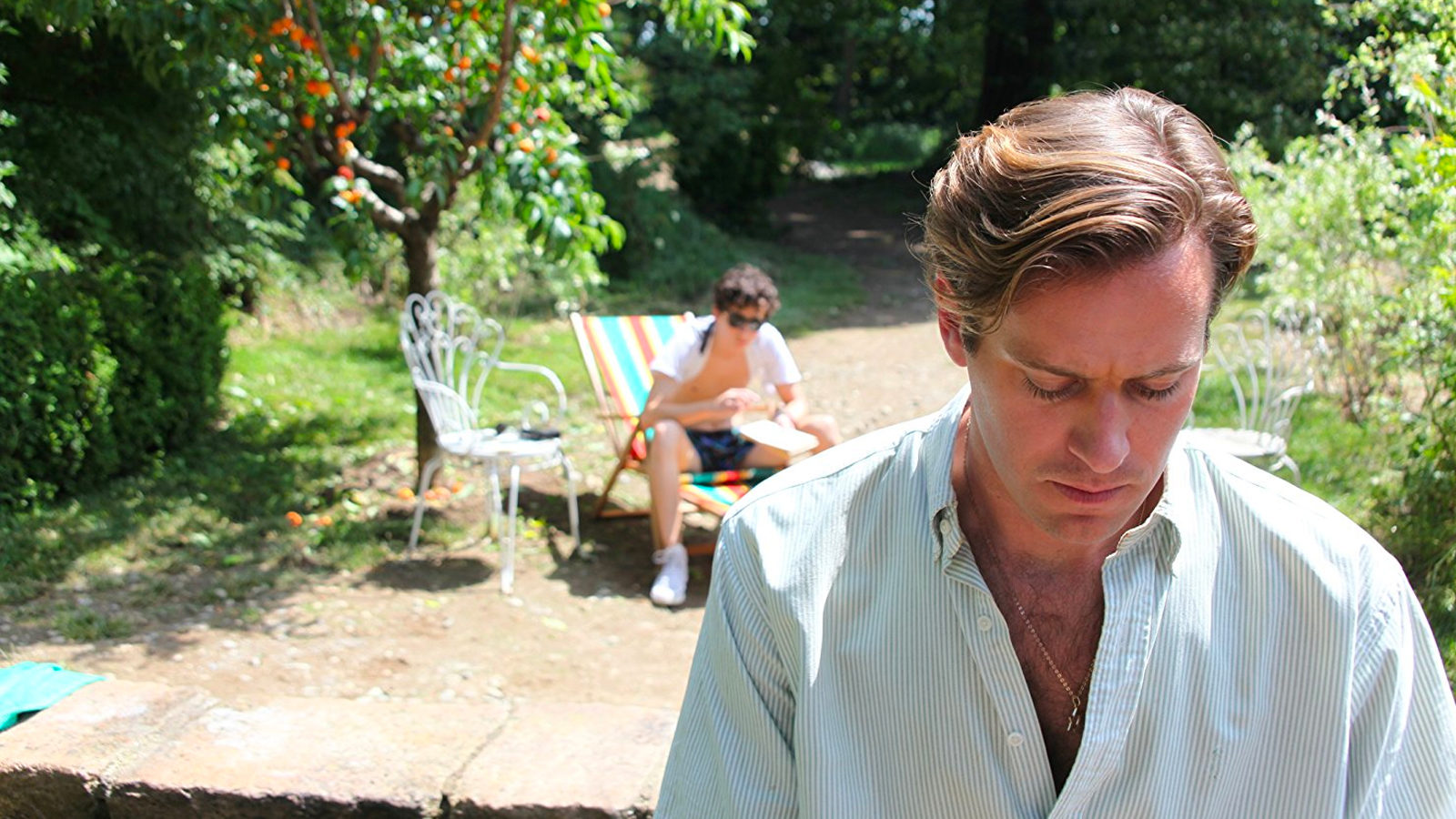 Armie Hammer in Call Me by Your Name.
Armie Hammer in Call Me by Your Name.
Villains
Sam Rockwell* # $ and Woody Harrelson$ (Three Billboards Outside Ebbing, Missouri) and Michael Shannon (The Shape of Water):
Where there is darkness, there are villains. In the last five years alone 7 out of 25 Best Supporting Actor nominees were villains. This may not sound like a lot, but when you factor in that 2 out of the 5 winners were villains, Christoph Waltz Django Unchained (2012) and J.K. Simmons Whiplash (2014), it can’t be ignored. Rockwell’s small town deputy is a racist momma’s boy who takes advantage of his station. It’s clear that much of what is disagreeable about him was homegrown, and so it is surprising to see his character go through such a transformation by the end of the film. The closest Rockwell has come to Oscar is a pair of BFCA nominations in 2011 and 2014. The first was for Best Supporting Actor for Conviction and the second for Best Actor in a Comedy for The Way Way Back. Harrelson, on the other hand, is the sheriff of the town whom is on the receiving end of the ire of Mildred Hayes (Frances McDormand in top form) following his department’s failure to catch those who raped and murdered her teenage daughter. I will not give anything away, but with limited screen time, he makes quite the impression. Harrelson has two Oscar nominations under his belt: Best Actor in 1997 for The People vs. Larry Flynt and Best Supporting Actor in 2010 for The Messenger. That brings us to Shannon’s performance in The Shape of Water, which takes place in the Cold War era and is the third film that fits the zeitgeist of this year. On display in his Richard Strickland is a hawkish brute whom has no regard for human beings, going so far as to relieve himself in front of the two cleaning women who ultimately work against him (Sally Hawkins and Octavia Spencer who both deliver in spades) and to cover his wife’s mouth during “love” making. He is a vile example of a man who in today’s society would be on the receiving end of a fair share of #metoo accusations. The Academy has singled out Shannon twice with nominations for films where other standout performances were overlooked: in 2009 for Revolutionary Road, and this year in Nocturnal Animals. Given this pattern, and the fact that The Shape of Water is a major Oscar contender, it’s tempting to want to pencil him in. Rockwell delivers what is probably his best work to date in this TIFF audience award winner. It’s not likely that he will miss the cut for an Oscar nomination, but if enough voters go for Woody Harrelson’s performance, the two could cancel one another out. Generally, Oscar loves a good villain, but maybe not this year when we have too many real villains in our midst.
Other considerations: All eight men I discussed here are white. If the Academy remains vigilant about #OscarsSoWhite they could mix it up with Idris Elba in Molly’s Game, newcomer Algee Smith in Detroit, Jason Mitchell in Mudbound, or Laurence Fishburne in Last Flag Flying. I can’t speak on the latter’s performance, but I can say that Smith’s, coming from my favorite film of the year, which has been woefully overlooked, is probably the most resonant. Elba holds his own opposite Jessica Chastain, who always delivers top-notch performances, and Mitchell is the heart and soul of Mudbound. Any of these men are more than worthy of a nomination, but haven’t been appearing in the precursor awards conversation. Sadly, even more white men have: Richard Jenkins (The Shape of Water), Steve Carrell (Battle of the Sexes), and Patrick Stewart (Logan).
~THE LADIES~
Last Year’s Best Supporting Actress Race Results:
– Viola Davis – Fences: She was nominated and won for her powerhouse performance as was predicted.
– Nicole Kidman – Lion: Kidman’s banner year began with this nomination and continues today with her roles in television (Big Little Lies and Top of the Lake: China Girl) and film (The Killing of a Sacred Deer).
– Michelle Williams – Manchester by the Sea: She was nominated despite grumblings from some critics who claimed she didn’t have enough screen time.
– Naomie Harris – Moonlight: Nominated
– Janelle Monáe – Hidden Figures: She was not nominated despite a BFCA nomination.
– Greta Gerwig – 20th Century Women: She also was not nominated despite her BFCA nomination.
Last year’s fifth nominee was Golden Globe and SAG nominee Octavia Spencer for Hidden Figures, who replaced Monáe, thereby earning her second Best Supporting Actress nomination.
By my discussing six nominees last year, you can see that on the ladies’ side, picking the eventual Oscar nominees was not so cut and dry—mainly because of the BFCA’s inclusion of Monáe and Gerwig in their list of six. Both actresses were ignored by the other awards bodies. Still, it was easy enough to determine almost all of the eventual Best Supporting Actress nominees by this time last year.
Mother!
Laurie Metcalf (Lady Bird)+ ~ * # $, Mary J. Blige (Mudbound)* # $, and Allison Janney (I, Tonya)* # $:
TIME just named their person of the year: The Silence Breakers. This is big news in a year following one that saw an accused sex offender take the presidency. Women have become the new cause to champion, and rightfully so. For far too long our culture has enabled sexual abuse against women and children by turning the other way, or providing hush money—no more. The Oscar for Best Picture went to Spotlight in 2016. The film depicted the true story of how the Boston Globe uncovered the massive child molestation scandal and cover-up within the Catholic Church. One can only guess what the film that discusses details of Harvey Weinstein’s or any other of the countless sex offenders’ actions that have been exposed this year will be like. But I hope our society learns from this and moves forward with the same vigilance that we are now witnessing, and continues to champion women and those who have been victimized by these heinous acts. Through all of this, my thoughts have turned to the mothers of these women and children. How helpless they must feel bringing children into this world where they cannot protect them. No once captures that sentiment more perfectly than Metcalf (Lady Bird) who struggles to maintain a positive relationship with her teenage daughter (Saoirse Ronan holding her own) as she prepares to leave the nest for college. Metcalf, perhaps best known as the titular character’s sister Jackie on Roseanne, earned multiple Primetime Emmy Awards nominations and wins for the show, and was also nominated for guest actress work in 3rd Rock from the Sun (1996), Monk (2006), Desperate Housewives (2007), and triple nominations last year for Getting On, Horace and Pete, and The Big Bang Theory. Outside of television, she has had a lot of success on the stage, and most recently won the Tony Award for Best Actress in a Play for A Doll’s House, Part 2. Dee Rees’ Mudbound is a gorgeous epic and at the center is Blige’s mother who, like Metcalf’s character, cannot protect her child (Jason Mitchell) from the evils that befall him. Blige is best known as a musician and performer, but here she strips down to the bare essentials, so much so that one hardly recognizes her, allowing her to fade into the role like a chameleon. Although her acting career is just heating up, Blige has been nominated for two Golden Globes for Best Original Song – Motion Picture: The Help in 2012 and again this year for Mudbound. Historically, the Academy runs cool on Netflix-produced films (see Beasts of No Nation last year, which failed to earn a single nomination). But something tells me that Blige will make it in the top five, even if it is just to stave off the curse of #OscarsSoWhite. Where it’s clear that Metcalf and Blige’s mothers love their children, Janney’s portrayal of the mother of one-time Olympic hopeful Tonya Harding (Margot Robbie giving the year’s best performance) in I, Tonya paints a picture of constant physical and mental abuse. Janney earned four back-to-back Primetime Emmy Awards nominations for her work in The West Wing. She for the same role in 2000-2002, was nominated for lead the following year, won the next and earned one final lead nomination for it in 2006. In 2014, she won two Primetime Emmys for Mom and Masters of Sex; she also was nominated for a Golden Globe for the former and nominated again for both the following year. In 2017, she was nominated again for Mom. Like Metcalf, Janney has also enjoyed success on the stage, having been nominated for Best Actress in a Play in 1998 for A View from the Bridge, and Best Actress in a Musical in 2009 for 9 to 5. Metcalf appears to have the momentum, and hers is my favorite of those in supporting this year. But you certainly can’t count out Janney, and the possibility exists that the two veterans of stage and screen could cancel one another out, allowing Blige, or someone else to sneak in.
Comfortable Favorites
Octavia Spencer (The Shape of Water)* # and Holly Hunter (The Big Sick)* $: Oscar often retreats to what is comfortable, and what better way to do that than to nominate those whom have won or been nominated? In the role of the best friend to love struck mute Elisa (Sally Hawkins knocking it out of the park), Spencer screen time, making her very memorable. As I mentioned earlier, she won for The Help and was nominated for Hidden Figures, but it’s worth mentioning that both films were sprawling ensembles, and though not everyone gets nominated from an ensemble, she did. That is a testament to how strong her chances of a nomination are, though a win is unlikely. Hunter was first nominated for Best Actress back in 1988 for Broadcast News, she earned double nominations in 1994 for The Piano (lead) and The Firm (supporting), and was last nominated for Best Supporting Actress in 2004 for Thirteen. There has been a groundswell of support for The Big Sick, which chronicles the true story of actor/comedian Kumail Nanjiani’s relationship with his wife, Emily Gordon, who battled cancer. The screenplay was written by the couple and Hunter plays Gordon’s mother who struggles to deal with her daughter’s illness. The film is struggling to hold on for a Best Picture nomination, but looks strong for screenplay, and with enough support Hunter could also get in.
Newcomers
Brooklyn Prince (The Florida Project)*: The performance from the seven-year-old actress is really a lead, but Academy members could slip her in here. She was recognized by the BFCA in the Best Young Actor/Actress category. Although it would be well-deserved, it is an unlikely scenario.
Hong Chau (Downsizing)* # $: The Thai actress, perhaps best known for her small television roles in Big Little Lies and Treme, has the most heat for this social satire that asks if our lives would be better if we were able to shrink ourselves. Despite the strong buzz for the performance, there is a feeling that the Vietnamese woman that Chau portrays is more of a caricature. But it has been eleven years since an Asian actress (Rinko Kikuchi for Babel) has been recognized by the Academy (unless you count Hailee Steinfeld who is one-eighth Filipino and was nominated for True Grit in 2010), and the optics of this possible nomination should not be ignored.
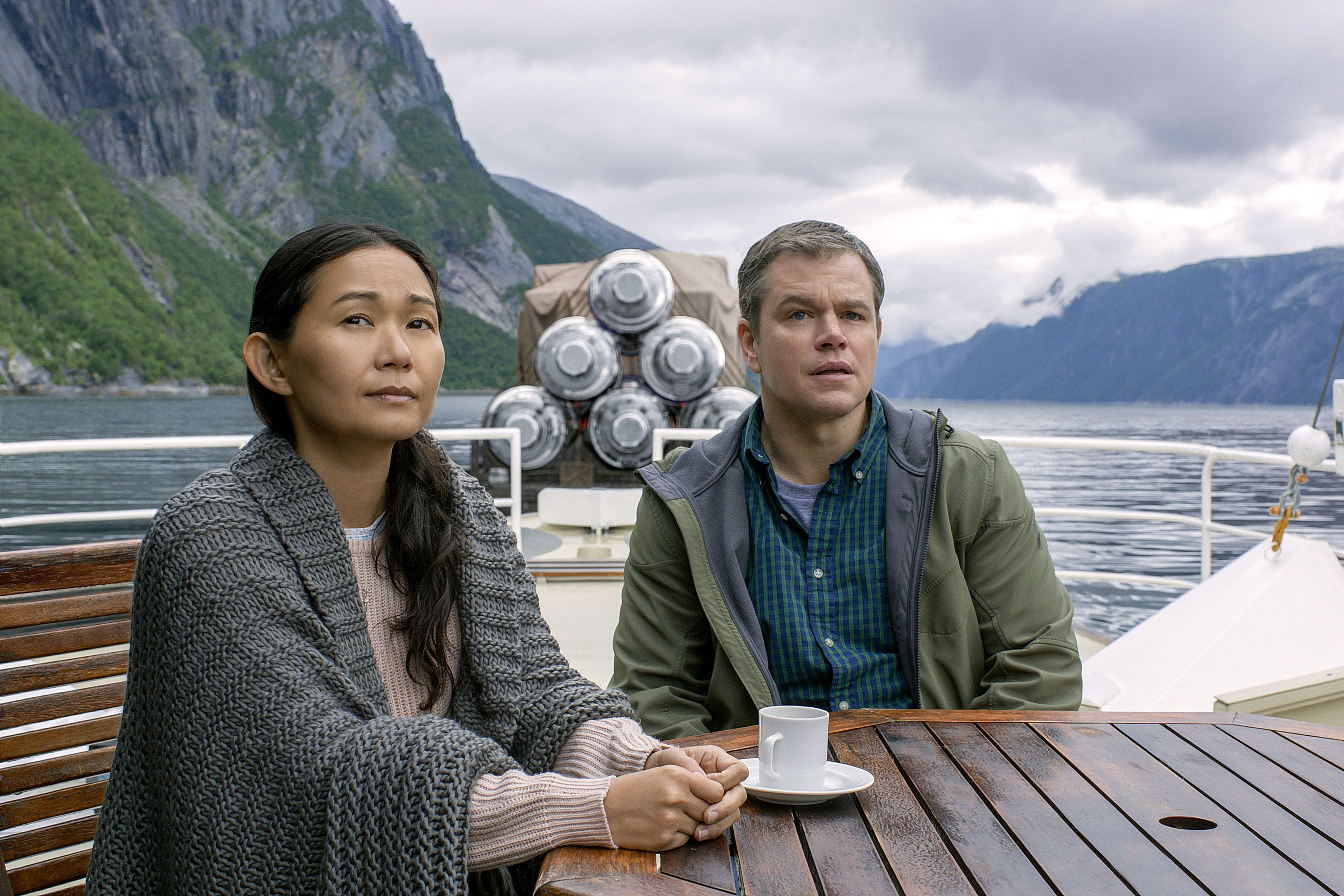 Hong Chau (left) in Downsizing.
Hong Chau (left) in Downsizing.
For the ladies, other possibilities include Kristin Scott Thomas for Darkest Hour as Clementine Churchill, and Melissa Leo for Novitiate as a stern Mother Superior, and Rosamund Pike as yet another kind of mother in Hostiles. There is also the opportunity to recognize Tiffany Haddish for her standout comedic performance in Girls Trip.
Any Oscar race is a wild ride; what seems like a sure thing can be gone tomorrow. We’re living in uncertain times where men (especially) are being taken down by their actions. Nothing is set in stone, and no one is safe.

